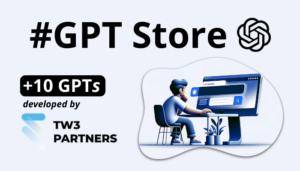In our contemporary digital epoch, the corporate landscape is in a constant state of flux, progressively gravitating towards Artificial Intelligence (AI) to fuel innovation and bolster efficiency.
The expansive AI terrain is replete with numerous models, among which Generative Pretrained Transformers (GPT) have carved out a significant room. GPT, with its transformative architecture, represents a monumental leap in AI, powering a suite of generative applications such as ChatGPT.
Balancing AI Data & Privacy in the Corporate World
However, to perform optimally, these models require an extensive database. This requirement inadvertently brushes against the boundaries of data privacy, particularly when managing sensitive or confidential corporate data.
The Challenge of Balancing Data Privacy and AI Utility
Data, a precious resource for corporations, also holds the potential to morph into a perilous liability. Data breaches can trigger dire consequences, from financial hemorrhage to lasting reputation damage. From this standpoint, data privacy escalates from a mere legal commitment to a cornerstone of corporate responsibility and customer trust.
Discover the potential of generative AI to optimize your processes, create new growth levers, and secure your digital transition.
TW3 Partners supports you with strategic solutions tailored to your business.
Your digital transformation starts here
The Paradox of Anonymization and AI Utility
Striking a harmonious chord between robust data anonymization and AI utility presents a formidable challenge for corporations. On one side of the spectrum, they must employ solid anonymization techniques to safeguard privacy, while simultaneously ensuring that these techniques do not significantly diminish the data’s utility for AI models.
The Roadmap Towards Harmonizing Utility and Data Anonymization
For corporations seeking to harmonize AI utility and data anonymization, the roadmap entails several pragmatic steps such as investing in advanced anonymization techniques, implementing strict data governance policies, utilizing privacy-preserving AI models, and conducting regular AI practices audits.
Leverage our expertise to integrate artificial intelligence strategically—without compromising security or business consistency.
TW3 Partners supports you with a personalized and efficient approach.
Bring Your Business into the Generative AI Era
What Does the Future Hold for Anonymization, and Data Privacy?
As AI continues its relentless march of progress, its involvement in data anonymization is poised to expand. Emerging techniques and models offer more refined ways of balancing data privacy and AI utility. Staying abreast of these developments is crucial for corporations to continue reaping the benefits of AI while upholding rigorous data privacy standards.
Conclusion
The intertwining of AI and data anonymization within corporate settings forms a complex yet critical field. By understanding the nuances and adopting proactive measures, corporations can harness the strength of AI models like GPT while maintaining impeccable data privacy standards. This delicate equilibrium transcends compliance with laws and regulations; it is about establishing trust with customers and stakeholders, and ultimately, practicing responsible data stewardship in the age of AI.
Download our white paper to learn how to integrate generative AI efficiently, sustainably, and responsibly into your business.
Case studies, adoption strategies, orchestration, SEO, HR, marketing…
A concise collection of insights and practical advice to help you take action.
Generative AI: From Experimentation to Real Transformation
It’s crucial to evaluate and improve data practices. Advanced anonymization techniques and privacy-focused AI models should be prioritized. Regular audits and continual learning encouraged. Workforce education on data privacy should also be a priority.
Finally, remember that not just legal compliance but trust should be built: commitment to data privacy truly sets you apart!




